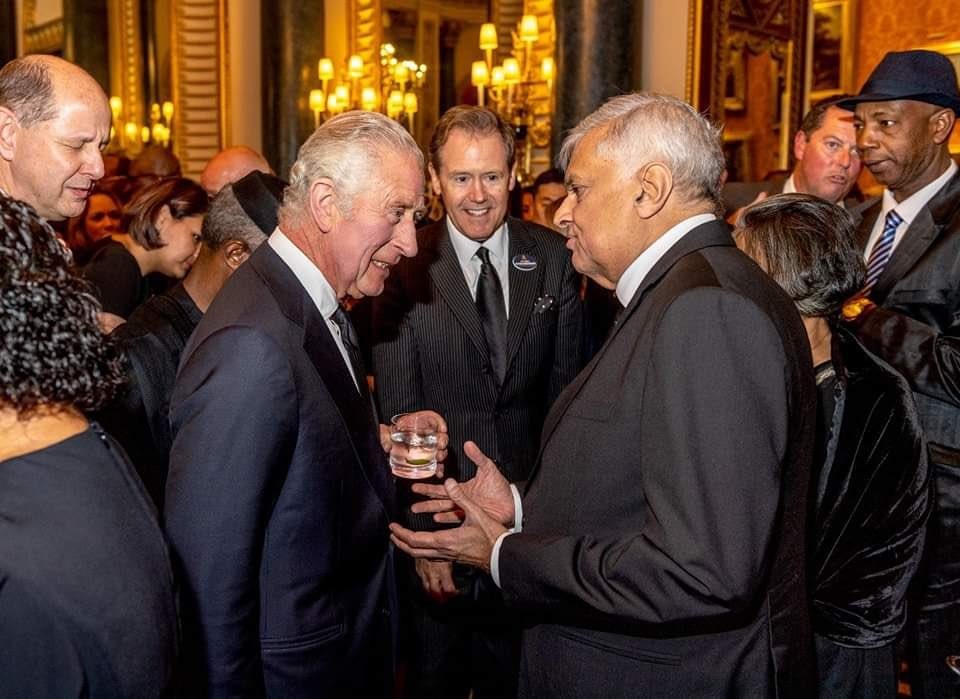Amidst growing concerns over the worsening human rights situation in Sri Lanka, Britain’s new head of state, King Charles III, met with Sri Lankan President Ranil Wickremesinghe, where the two were pictured in conversation.
The meeting follows growing criticism of the Britain’s new hereditary monarch who has held 95 meetings with 8 repressive monarchies in the Middle East since the ‘Arab Spring’ protests of 2011 and for his role in promoting 14.5-billion worth of UK arms exports to these regimes.
Writing in Declassified, Phil Miller and Mark Curtis highlight that King Charles has held meetings with Bahrain, Jordan, Kuwait, Morocco, Qatar and Saudi Arabia, Oman and the United Arab Emirates.
“Many of these visits took place just before or during specific acts of repression by these regimes – especially of opposition activists, the media or religious minorities – acts which have been regularly condemned by human rights groups,” they write.
Sri Lanka’s leader has come under increasing international condemnation for his crackdown on peaceful demonstrators and the use of the draconian Prevention of Terrorism Act to silence government critics.
The latest report by the former UN High Commissioner for human rights warns of a culture of impunity in Sri Lanka and deepening militarisation.
Responding to the visit of Sri Lanka’s president to the UK, numerous British Tamils expressed their concerns. Sockalingam Yogalingam, a spokesperson for the Transitional Government of Tamil Eelam told the Tamil Guardian:
“In 2018, we protested against Wickremesinghe’s visit because he only served to whitewash Sri Lanka’s atrocities. Today nothing has changed. He should not be given the privilege of visiting queen during this period of national mourning”.
Read more here
We need your support
Sri Lanka is one of the most dangerous places in the world to be a journalist. Tamil journalists are particularly at threat, with at least 41 media workers known to have been killed by the Sri Lankan state or its paramilitaries during and after the armed conflict.
Despite the risks, our team on the ground remain committed to providing detailed and accurate reporting of developments in the Tamil homeland, across the island and around the world, as well as providing expert analysis and insight from the Tamil point of view
We need your support in keeping our journalism going. Support our work today.
For more ways to donate visit https://donate.tamilguardian.com.


